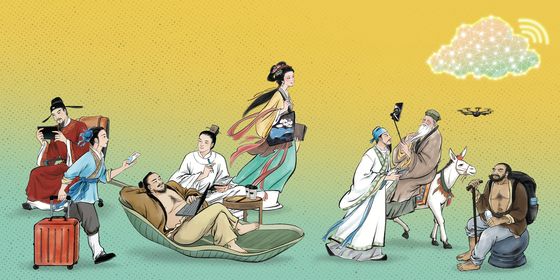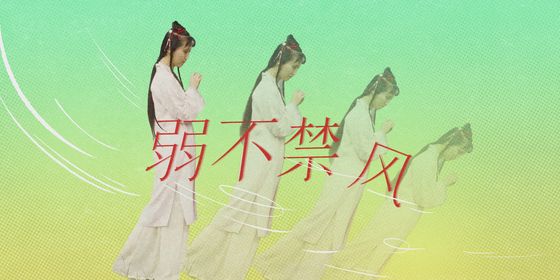Chess-inspired idioms for strategizing and winning
Choice Chengyu is a regular column, examining interesting, unique or newsworthy examples of chengyu—four-character idioms or proverbs, derived from historical and mythical events.
Last week, 58-year-old Igors Rausis was caught using his phone in the toilets during a chess match at the Strasbourg Open. The Latvian-Czech grandmaster admitted to cheating, and announced he’d played his “last game of chess.”
A Chinese idiom to summarize such a career-ending scandal would be: 一着不慎,满盘皆输 (Yìzhāo búshèn, mǎnpán jiēshū. One careless move spoils the entire game). Though Western chess (known as “international chess”) didn’t become popular in the country until the late 1800s, ancient games like Chinese chess and Go, which are both referred to as “棋” (qí), have given rise to wider philosophical ideas and sayings about victory, strategy, and defeat:
当局者迷,旁观者清 The players are muddled while the spectators see the game clearly
When Song poet Su Shi visited Lushan Mountain, he wrote, profoundly, “I can’t see the true shape of Lushan, because I am in the mountain myself.” Similarly, this chess-inspired expression describes a situation where an outsider’s perspective is needed:
You should try to listen to the opinions of others. After all, the spectators see the chess game better than the players.
Nǐ yīnggāi shìzhe tīngqǔ biérén de yìjiàn, bìjìng dāngjúzhě mí, pángguānzhě qīng ma.
你应该试着听取别人的意见,毕竟当局者迷,旁观者清嘛。
举棋不定 Hold the chess-piece and hesitate to move
This chengyu originally described indecisive players, and now refers to any individual who is unable to come to a decision:
When I was hesitating about what to do next, his words helped me make a decision.
Dāng wǒ jǔqí búdìng de shíhou, tāde huà bāng wǒ xià le juéxīn.
当我举棋不定的时候,他的话帮我下了决心。
落子无悔 No going back after the chess-piece is put down
In a chess game, once you have put down your piece, you can’t take back your move. Now, this chengyu can apply to any important decision:
Life is like a game of chess: Once you’ve made a move, there’s no going back.
Rénshēng rúqí, luòzǐ wúhuǐ.
人生如棋, 落子无悔。
棋逢对手 Meet one’s match in a game of chess
This chengyu refers to two highly skilled, well-matched opponents in any competition:
Federer and Nadal are truly well-matched; the tournament was quite intense.
Fèidélè hé nàdá’ěr zhēnde shì qíféngduìshǒu, bǐsài shífēn jīliè.
费德勒和纳达尔真的是棋逢对手,比赛十分激烈。
棋高一着,缚手缚脚 Playing as if your hands are tied against a better chess opponent
When playing against a more skilled rival, you may not enjoy the game very much: Your advantages are nullified, your weaknesses are exploited, and you may even lose control of your emotions. Such a despondent state is summarized into a chengyu, the first half of which can be used alone:
It’s not surprising that you lost the game. He is indeed a notch above you.
Nǐ shū le bǐsài bìng bù qíguài, tā díquè qígāo yìzhāo.
你输了比赛并不奇怪,他还是棋高一着。
过河卒子 The Soldier that has crossed the river
According to the rules of Chinese chess, once a Soldier (卒, zú) crosses the “River” in the middle of the board, they’re not allowed to move back across. Likewise, this chengyu means one has made a decision from which there’s no return:
I’m a Soldier that has already crossed the river, there’s no going back.
Xiànzài wǒ yǐjīng shì ge guòhé zúzi, méiyǒu huítóulù le.
现在我已经是个过河卒子,没有回头路了。
弃车保帅 Give up a Chariot to save a General
The most valuable piece in Chinese chess is the General (帅 shuài, or 将 jiāng). Once that’s taken by your opponent, you lose. Sometimes, to protect the General, the player has to make the painful decision to sacrifice another piece, such as the Chariot (车, jū). If you ever have to make a minor sacrifice in hopes of a bigger gain in the long run, you can say:
Now we must give up the Chariot to save the General.
Xiànzài wǒmen zhǐnéng qìjū bǎoshuài le.
现在我们只能弃车保帅了。












